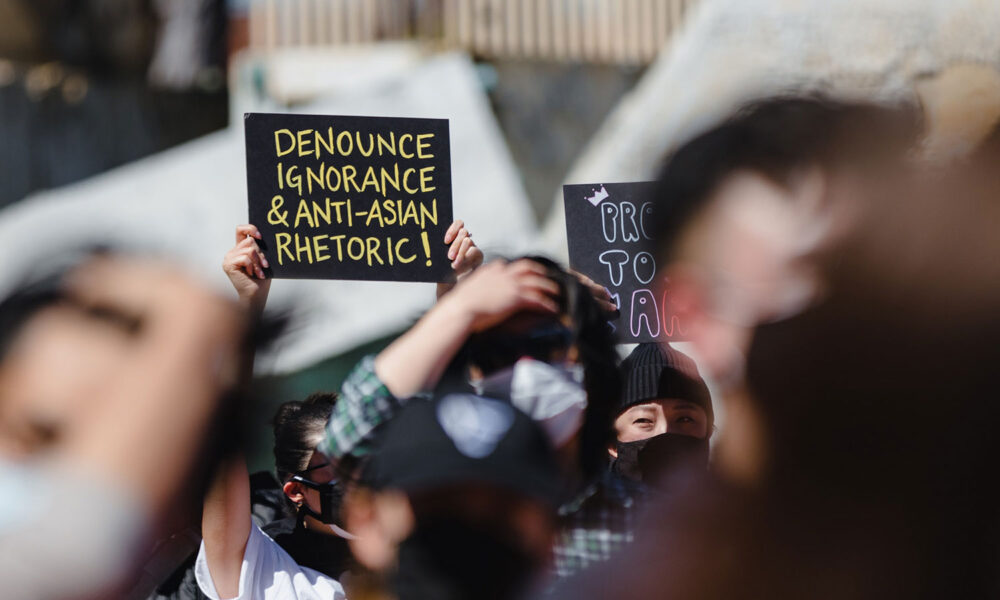There is a demonstrable link between expressions of US government anxiety about China and insecurity among Asian Americans and Pacific Islanders. Those fears are likely to increase if the US government continues to portray China as a dangerous adversary in a zero-sum contest for global supremacy.
One way to protect the safety and well-being of Asian Americans and Pacific Islanders in an era of increasing hostility between the two governments is for US political leaders to draw clear lines between national priorities and individual rights. Public servants should take care US China policies do not bring undue harm to private lives; that Asian Americans and Pacific Islanders don’t become collateral damage in a new cold war with China.
Chinese Americans are especially vulnerable. They play a critical role in the creation and maintenance of economic, social, and cultural ties between the two countries. Many US politicians once cherished those relationships. Now they find them threatening. Increased US government scrutiny has already led federal law enforcement to treat Chinese American scientists unjustly. Lives have been disrupted and careers ruined.
The enmity between the two governments need not tear asunder valuable economic, social, and cultural relationships between the people of China and the United States. Preserving and expanding those relationships should not come at the cost of accusations you’re un-American or a national security threat. The subset of interactions between Chinese and Americans that could harm the US government is infinitesimal. Empowering federal bureaucrats to treat every commercial, professional, and academic exchange between Chinese and Americans as a potential security problem is government overreach of the worst possible kind.
Unfortunately, that is precisely what the US Congress is poised to do this summer. To get long overdue public investment in US scientific and technological infrastructure through a divided Congress, Senate sponsors loaded the United States Innovation and Competitiveness Act (USICA) with discriminatory provisions that would require every US government department and agency to appoint officials with a mandate to search for nefarious ties to China. Chinese and other Asian Americans will inevitably suffer most from the McCarthyesque investigations bound to follow.
The Congressional Asian Pacific American Caucus (CAPAC) kept those provisions out of the America COMPETES Act, the version of the bill that passed the House. CAPAC Chair Rep. Judy Chu (CA-27) promised “to ensure that the final legislation does not include broad xenophobic, anti-China rhetoric that could endanger the lives of Asian American communities” or “any language that encourages the racial profiling of Asian Americans by our own government.”
But that promise may be hard to keep. Majority Leader Sen. Charles Schumer may ask Chu and CAPAC to set aside their objections and accept the Senate’s version of the bill without amendments. It may be the only way to pass the legislation, which is stalled in conference committee negotiations between the House and the Senate, in time to help Democrats in both chambers prevail in the upcoming mid-term elections.
Schumer’s political instincts are informed by public opinion polls suggesting President Biden is “weak” on China. An increasing number of Americans believe China is an economic threat; that Chinese economic development comes at their expense. This resentment is feeding an anti-Chinese populism that calls to mind the Workingman’s Party of California in the late 1870s, whose political agitation led to the passage of the Chinese Exclusion Act and a wave of violence against Chinese Americans. Utah Senator Mitt Romney enlisted the racist rhetoric of that period in support of the US government’s fight against China today, referring to the Chinese as “bacteria” and the anti-China legislation before Congress as life-saving “sterilization.”
The most effective way to mitigate the harmful impact of political fearmongering is public education. Knowledge diminishes fear, increases empathy, and makes it more difficult for politicians to deflect blame for their failures. An informed electorate will be less likely to demonize others and more open to pursuing the domestic and international cooperation needed to cope with climate change and reduce the risk of nuclear war.
The 1990 Institute is a US non-profit organization dedicated to “improving mutual understanding, promoting a constructive environment for US-China relations, and championing the fair and equitable treatment of Asian Americans.” UCS encourages our staff, members and supporters to attend a pair of free on-line educational workshops the institute is offering this summer. At a time when the risk of hot and cold wars between the United States and China is rising, the success of programs that help diminish fear and promote cooperation can help UCS put US environmental and security policies on a just and equitable path towards a healthy and peaceful future.
UCS also encourages everyone, especially the leaders of US Asian American organizations, to call Representative Chu and the other 74 members of the Congressional Asian Pacific American Caucus (CAPAC) to urge them to tell Senator Schumer they will keep their promise and vote against the Senate’s USICA if it is presented, unamended by the conference committee, to the House.

